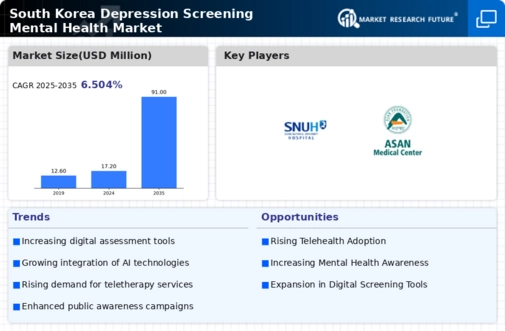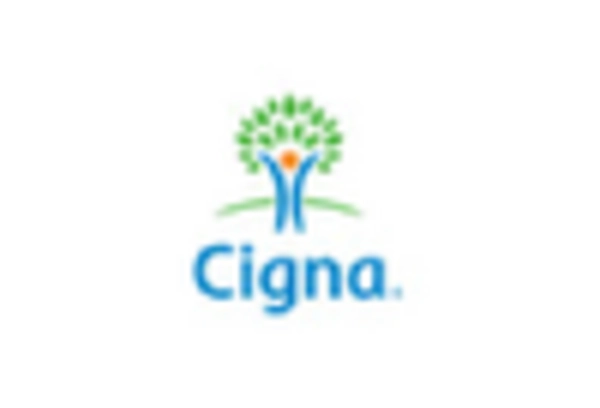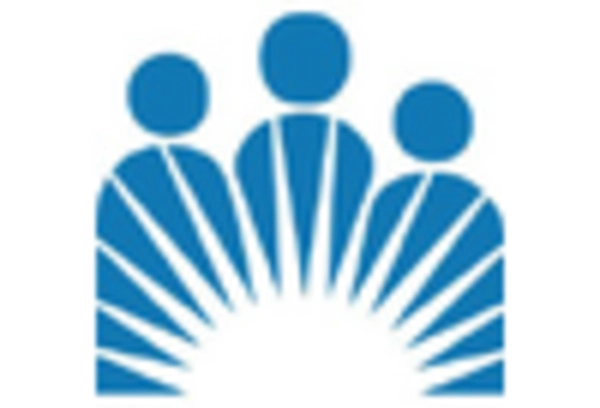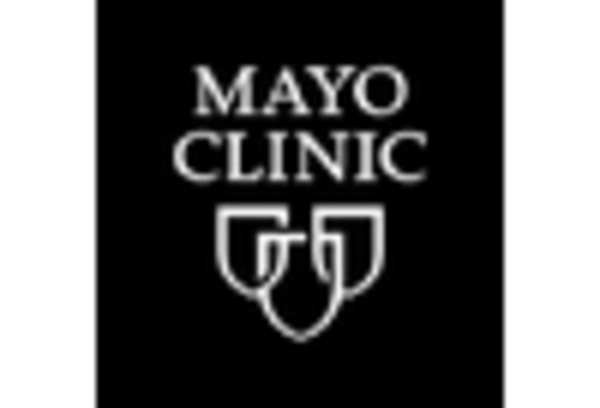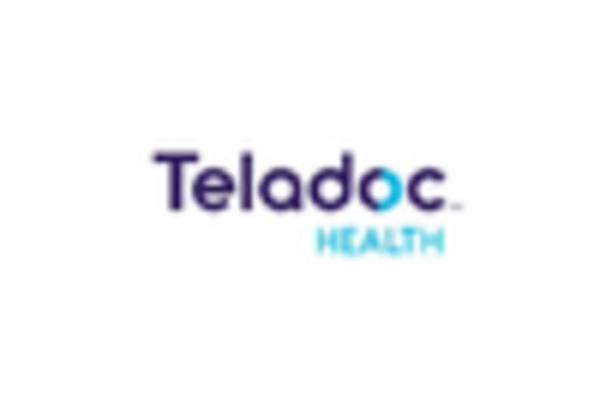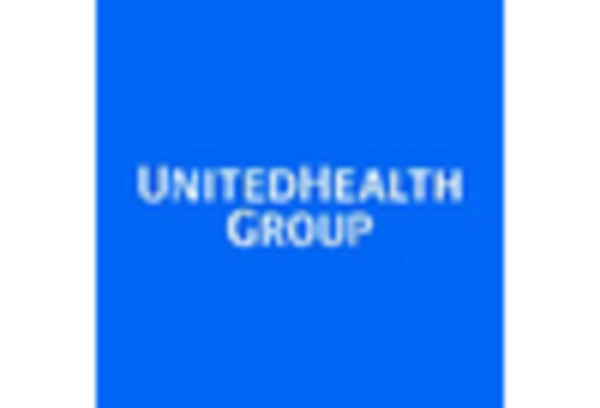Government Funding and Support
Government funding and support for mental health initiatives in South Korea play a crucial role in shaping the depression screening-mental-health market. Recent allocations have focused on enhancing mental health services, including screening programs aimed at early detection and intervention. In 2025, the government announced a budget increase of 15% for mental health services, which is expected to facilitate the development and implementation of innovative screening tools. This financial backing not only enhances accessibility but also encourages collaboration between public and private sectors, fostering a more robust infrastructure for mental health care. As a result, the depression screening-mental-health market is likely to experience growth driven by these supportive measures.
Rising Mental Health Awareness
The increasing awareness surrounding mental health issues in South Korea is a pivotal driver for the depression screening-mental-health market. Public campaigns and educational programs have contributed to a cultural shift, encouraging individuals to seek help for mental health concerns. According to recent surveys, approximately 30% of South Koreans acknowledge experiencing symptoms of depression, highlighting the need for effective screening methods. This growing recognition of mental health challenges is likely to propel demand for screening services and tools, as individuals become more proactive in addressing their mental well-being. The depression screening-mental-health market is thus positioned to benefit from this heightened awareness, as more people seek out resources and support for their mental health needs.
Increased Focus on Preventive Care
There is a notable shift towards preventive care in South Korea, which significantly impacts the depression screening-mental-health market. Health professionals and policymakers are increasingly recognizing the importance of early detection and intervention in mental health issues. This proactive approach is reflected in the implementation of routine screening programs in various settings, including schools and workplaces. Research indicates that early intervention can reduce the severity of depression symptoms by up to 50%, underscoring the value of preventive measures. As a result, the depression screening-mental-health market is likely to see a surge in demand for screening services that align with this preventive care paradigm.
Cultural Shifts Towards Mental Health
Cultural shifts in South Korea are gradually changing perceptions of mental health, which is a significant driver for the depression screening-mental-health market. Historically, mental health issues have been stigmatized, but recent trends indicate a growing acceptance of mental health discussions. This change is particularly evident among younger generations, who are more open to seeking help and discussing their mental health challenges. Surveys show that 60% of young adults are willing to engage in conversations about mental health, which is likely to increase the demand for screening services. As societal attitudes continue to evolve, the depression screening-mental-health market is expected to benefit from this cultural transformation.
Integration of Digital Health Solutions
The integration of digital health solutions into the depression screening-mental-health market is transforming how mental health services are delivered in South Korea. With the rise of telehealth platforms and mobile applications, individuals can now access screening tools and mental health resources from the comfort of their homes. This shift is particularly relevant in urban areas, where busy lifestyles may hinder traditional in-person consultations. Data indicates that the use of digital mental health tools has increased by 40% in the past year, suggesting a growing acceptance of technology in mental health care. Consequently, the depression screening-mental-health market is likely to expand as more individuals utilize these innovative solutions for screening and support.


